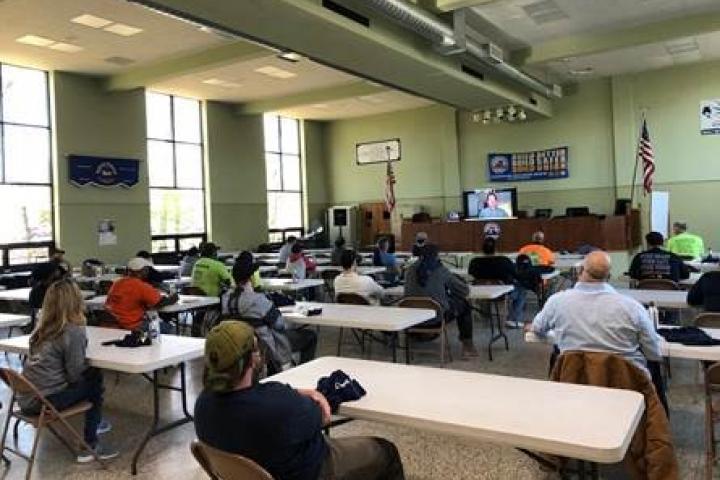
Data Snapshots on Care Work, Online Platform Work, and Sexual Harassment in New York State
How prevalent is sexual and racial/ethnic harassment in the workplace? How does intimate partner violence impact people at work? What are the key stresses of working in the care economy? Do online platform workers earn enough to support themselves? These are just some of the questions the research team at the Worker Institute sought to answer through their analysis of the Empire State Poll (ESP), a survey on labor and employment issues in New York State. The Worker Institute recently published three data snapshots of findings to questions asked about the care economy, the experience of sexual harassment in the workplace, and work for online platforms. Read on for a preview of key findings with links to the three data snapshots.
The Impact of Sexual and Racial Harassment and Violence on Working New Yorkers
Our analysis found that 1 in 4 respondents reported that they have experienced sexual harassment in the workplace, with rates disproportionately higher among cisgender women and transgender and gender non-conforming respondents compared to cisgender men. Moreover, 1 in 7 respondents have experienced racial/ethnic harassment in the workplace, with the highest rates among those who identified as Hispanic, multiracial, or as an “other” race. Respondents reported that meeting with their employers, HR investigations, and formal complaints were the most effective means for addressing both kinds of harassment. When asked if respondents had experienced intimate partner violence (IPV), we found that 1 in 7 respondents report that they had. Nearly half of these respondents reported that their experiences of IPV impacted their employment, including needing time off for counseling or medical treatment, or needing a safety plan in case their partner (or ex-partner) found them at work.
New York Care Workers: The Weight of Stress and Unpaid Caregiving
Care workers made up over one-third of the working population of ESP respondents, working in fields including healthcare, domestic work, childcare, eldercare, and care for people with disabilities. Compared with the general working population of ESP respondents, care worker respondents were more likely to report low pay, disrespect, understaffing, harassment and discrimination, or feeling unsafe at work as the sources of their stress and/or burnout at work. When asked how often job stress and/or burnout makes it difficult to take care of themselves and/or spend time with people they care about, care workers generally reported a greater impact of stress and burnout compared to the general working population.
Online Platform Work: Findings from the Empire State Poll
Approximately 11% of ESP respondents indicated that they worked for an online or mobile-based platform in the last year, such as DoorDash and Uber. However, about one-third of these respondents said that the income earned through their online platform work was insufficient for covering their household living expenses. These respondents supplemented their income in various ways, including with working additional jobs, income from a partner or other family member, and/or government assistance. Despite these issues, a majority of ESP respondents who worked for an online platform reported good job satisfaction and that their online platform work utilized their skills and abilities well.



